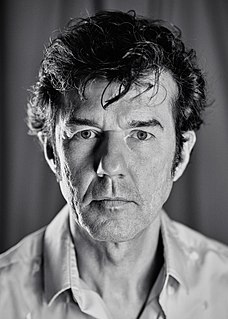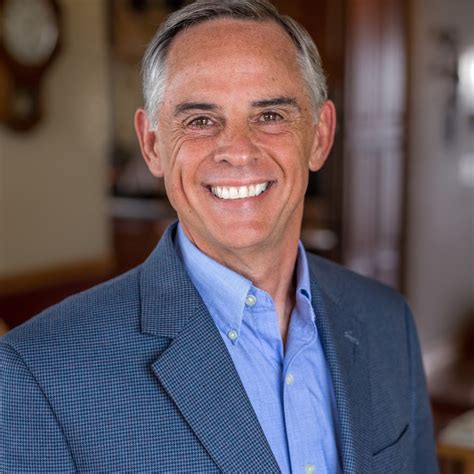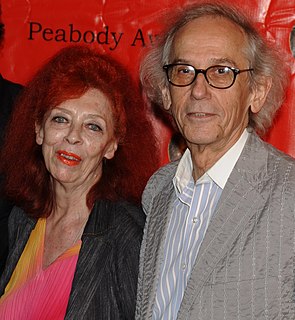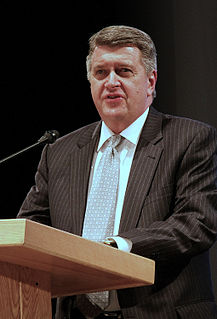A Quote by Stefan Sagmeister
The conventional wisdom in our business is that you have to grow and keep moving to survive. We never grew, always stayed tiny, and it serves us very well over the years, allowing us to pick and choose projects, and keeping our financial independence from our clients. We actually have a rather good track record, because we do select projects carefully. Most of our ideas don't eat dust but glimpse the light of day because we find it much more helpful to spend some serious time and effort before we start working on a project, rather than suffer through it afterwards.
Quote Topics
Actually
Afterwards
Allowing
Always
Because
Before
Business
Carefully
Choose
Clients
Conventional
Conventional Wisdom
Day
Dust
Eat
Effort
Financial
Financial Independence
Find
Glimpse
Good
Grew
Grow
Helpful
Ideas
Independence
Keep
Keep Moving
Keeping
Light
More
Most
Moving
Much
Never
Our
Over
Pick
Pick And Choose
Project
Projects
Rather
Record
Select
Serious
Some
Spend
Start
Stayed
Suffer
Survive
Than
Through
Time
Tiny
To Survive
Track
Track Record
Us
Very
Well
Wisdom
Working
Years
Related Quotes
Stress is a choice. Do you buy that? Some people have a hard time with the idea. Yes, bad things happen: The economy sours, our business struggles, the stock market tumbles, jobs are lost, people around us don't follow through, deadlines are missed, projects fail, good people leave. Life is full of these. But still, stress is a choice because whatever the 'trigger event,' we always choose our own response. We choose to react angrily. We choose to stuff our emotions and keep quiet. We choose to worry. Stress is a choice.
Well, one measure of a good life, I think, is to be engaged in projects that one thinks are meaningful and worthwhile. So I would put the emphasis of a good life on activity, on the walk rather than the destination, and I think that most of the things that any of us do that are really valuable and really important are projects that we really shouldn't expect to be completed in our lifetime because if they could completed in our lifetime, they probably wouldn't be so important that we should devote our lives to them.
What sets us apart from some of the other options available would definitely be our unique combination of skills and craftsmanship with being a well-managed business. We control the number of projects we are involved with so that our clients remain a top priority throughout the duration of their project.
Many aspects of our screen-bound lives are bad for our social skills simply because we get accustomed to controlling the information that comes in, managing our relationships electronically, deleting stuff that doesn't interest us. We edit the world; we select from menus; we pick and choose; our social 'group' focuses on us and disintegrates without us. This makes it rather confusing for us when we step outdoors and discover that other people's behaviour can't be deleted with a simple one-stroke command or dragged to the trash icon.
Hope is that tiny light that the gods have given us so that we can find our way through our darkest hours. And while we might stub our toes and bruise our knees, if we keep moving forward, even when our progress is slow and painful, we will overcome and be made better by our journey. … No misery or bad situation is ever infinite or final until we make a conscious decision for it to be so.
At some point, we have each said through our tears, “I’m suffering for a love that’s not worth it.” We suffer because we feel we are giving more than we receive. We suffer because our love is going unrecognized. We suffer because we are unable to impose our own rules. But ultimately there is no good reason for our suffering, for in every love lies the seed of our growth.
In childhood our credulity serves us well. It helps us to pack, with extraordinary rapidity, our skulls full of the wisdom of our parents and our ancestors. But if we don't grow out of it in the fullness of time, our ... nature makes us a sitting target for astrologers, mediums, gurus, evangelists, and quacks. We need to replace the automatic credulity of childhood with the constructive skepticism of adult science.
We must remember that much spiritual growth does not occur suddenly but rather through time and experience. The encouraging message of the gospel is that God does not often require us to perform sensational or extraordinary deeds but rather to try to do better today than we did yesterday. He is mindful of our desires, our determination, and our direction as well as of our deeds.
We've demonstrated a strong track record of being very disciplined with the use of our cash. We don't let it burn a hole in our pocket, we don't allow it to motivate us to do stupid acquisitions. And so I think that we'd like to continue to keep our powder dry, because we do feel that there are one or more strategic opportunities in the future.
All men and women are born, live, suffer and die; what distinguishes us one from another is our dreams, whether they be dreams about worldly or unworldly things, and what we do to make them come about... We do not choose to be born. We do not choose our parents. We do not choose our historical epoch, the country of our birth, or the immediate circumstances of our upbringing. We do not, most of us, choose to die; nor do we choose the time and conditions of our death. But within this realm of choicelessness, we do choose how we live.
We are children, perhaps, at the very moment when we know that it is as children that God loves us - not because we have deserved his love and not in spite of our undeserving; not because we try and not because we recognize the futility of our trying; but simply because he has chosen to love us. We are children because he is our father; and all of our efforts, fruitful and fruitless, to do good, to speak truth, to understand, are the efforts of children who, for all their precocity, are children still in that before we loved him, he loved us, as children, through Jesus Christ our lord.
We grow because the clamorous, permanent presence of our children forces us to put their needs before ours. We grow because our love for our children urges us to change as nothing else in our lives has the power to do. We grow (if we're willing to grow, that is: not every parent is willing) because being a parent helps us stop being a child.
The storyteller is deep inside everyone of us. The story-maker is always with us. Let us suppose our world is attacked by war, by the horrors that we all of us easily imagine. Let us suppose floods wash through our cities, the seas rise . . . but the storyteller will be there, for it is our imaginations which shape us, keep us, create us - for good and for ill. It is our stories that will recreate us, when we are torn, hurt, even destroyed. It is the storyteller, the dream-maker, the myth-maker, that is our phoenix, that represents us at our best, and at our most creative.








































